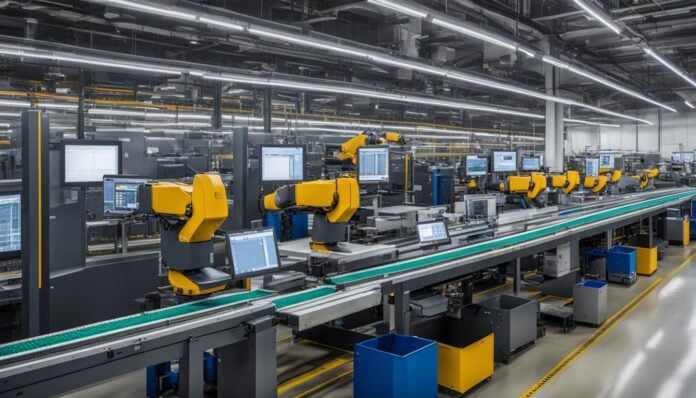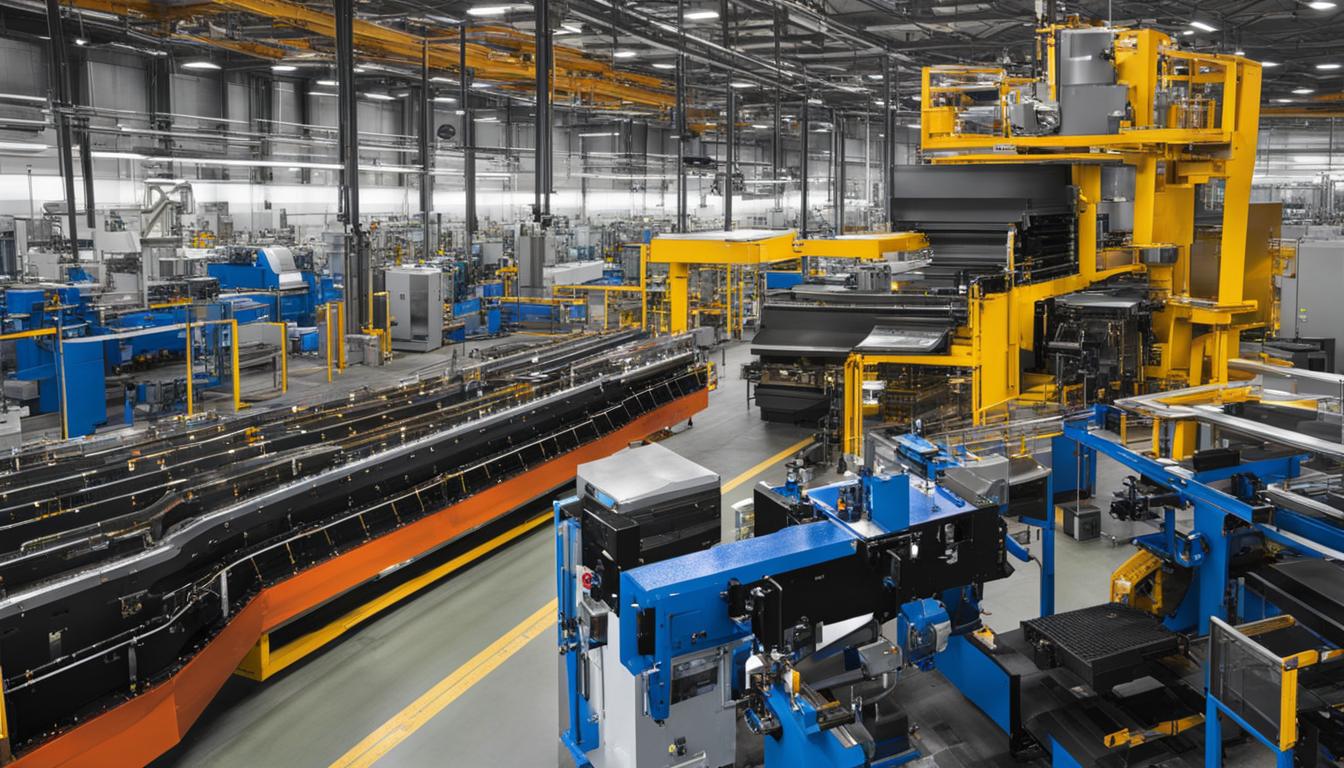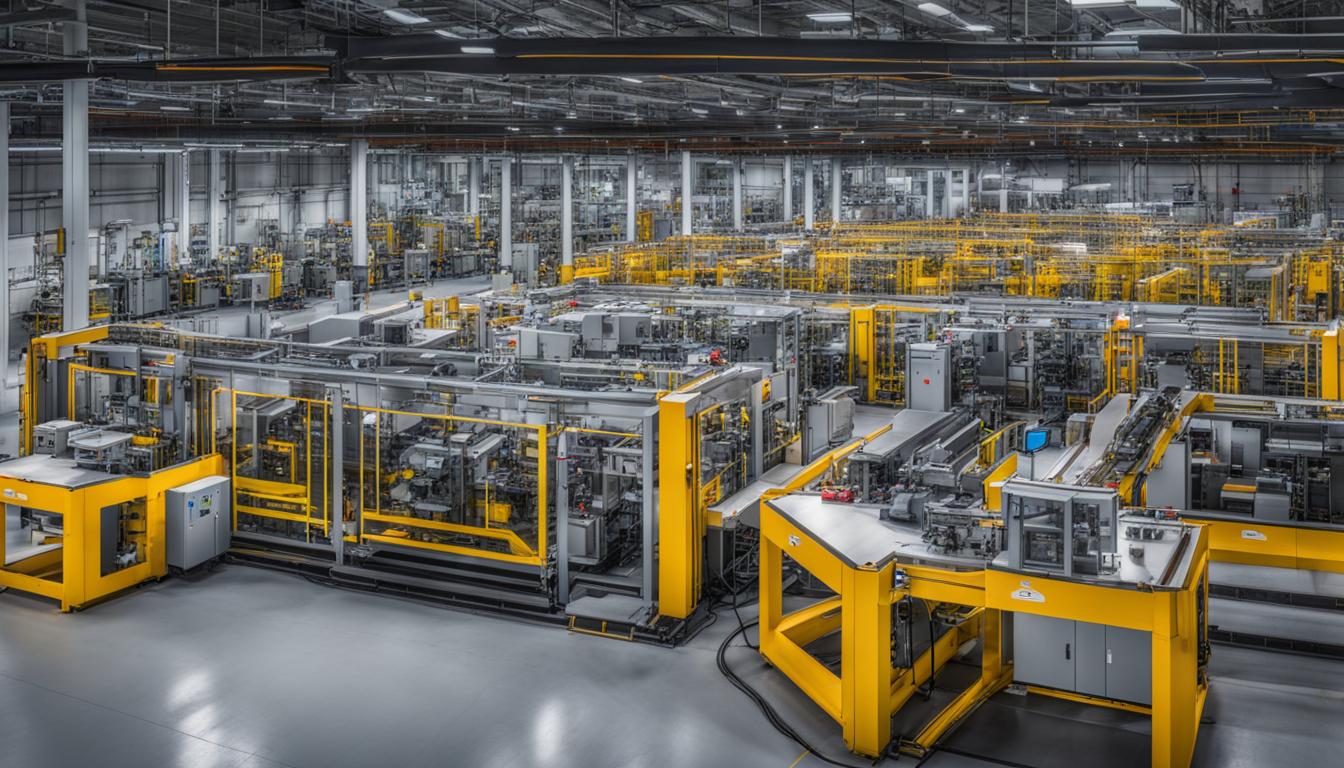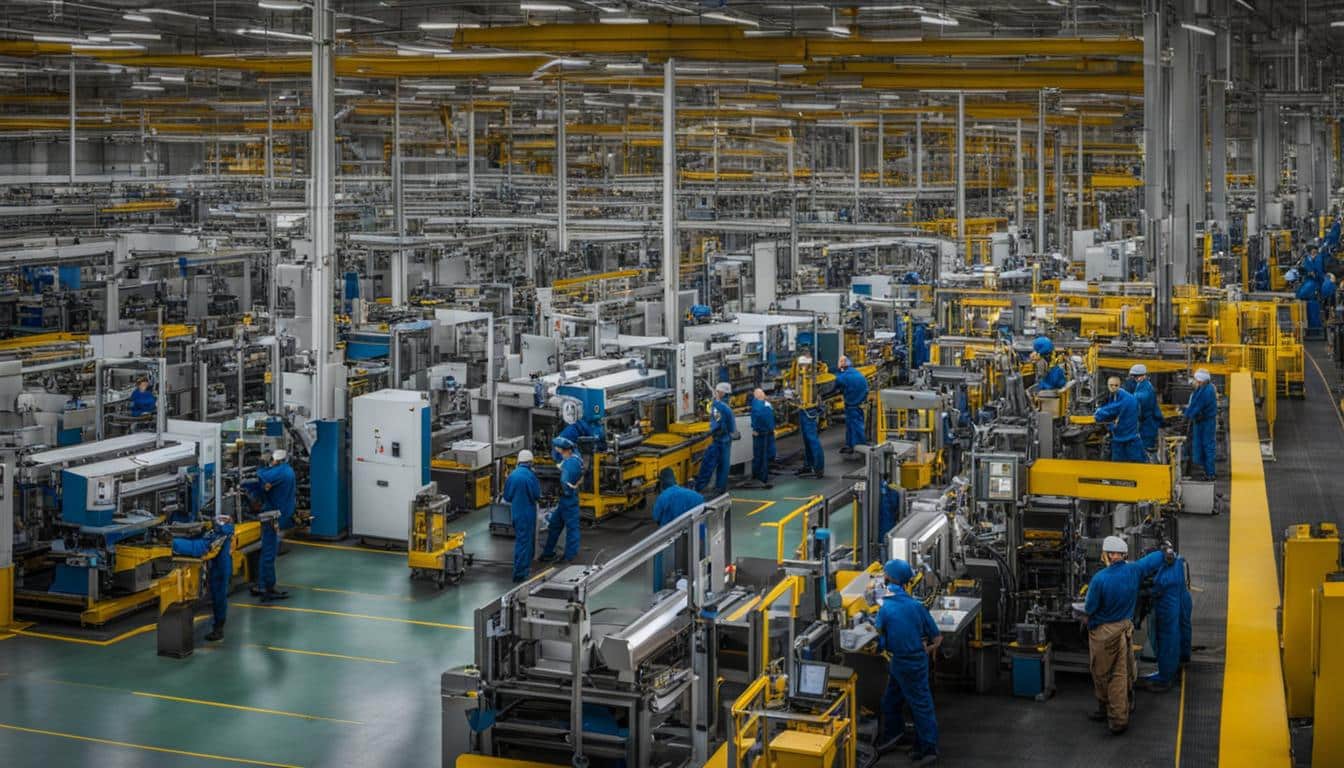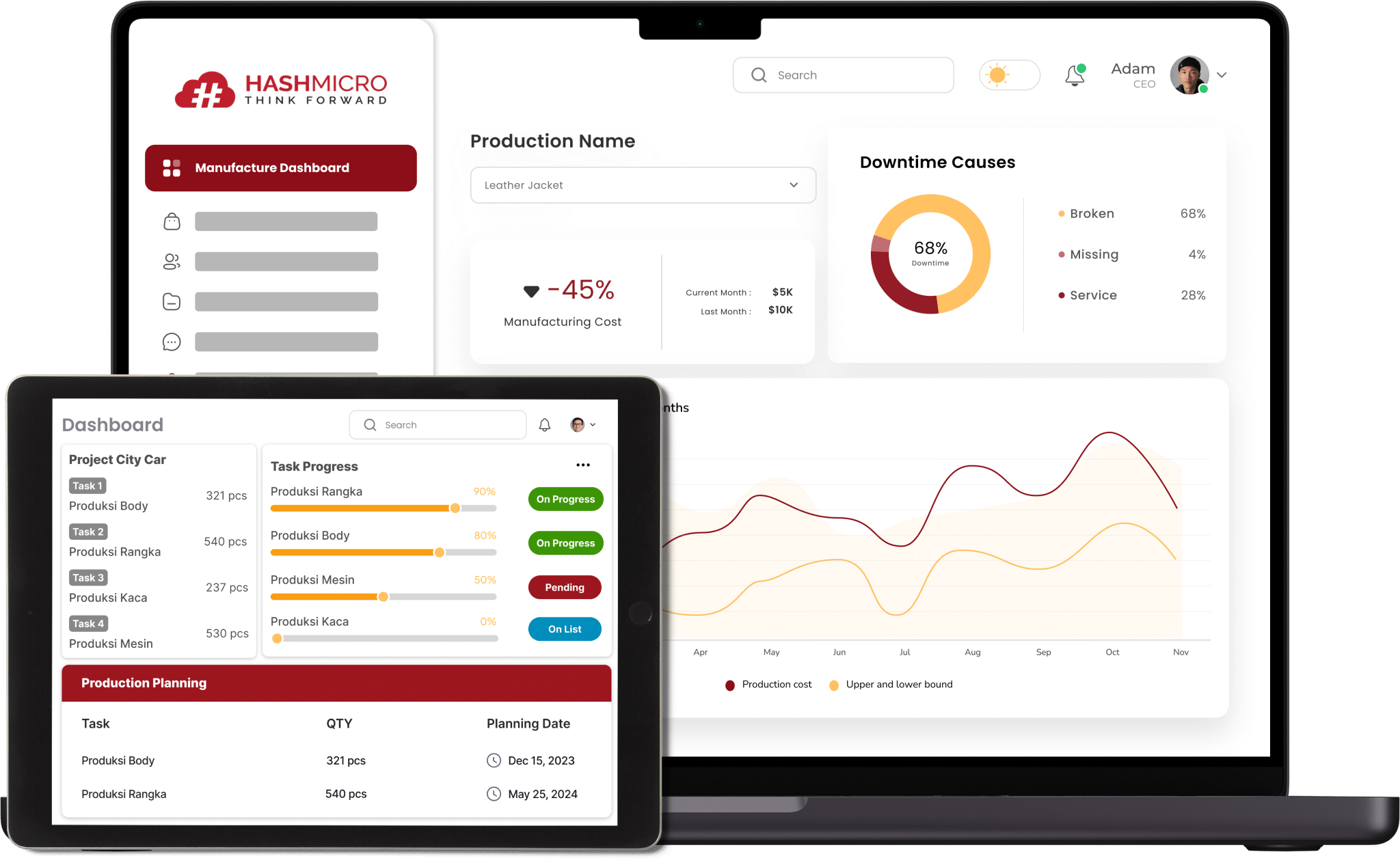Dynamic scheduling is one such strategy that can revolutionize your manufacturing operations and help you stay ahead of the competition. The importance of dynamic scheduling lies in its ability to adapt to real-time changes and uncertainties in the manufacturing process.
By incorporating dynamic scheduling, manufacturers can respond quickly to market demands, reduce waste, and improve overall productivity, making it an indispensable tool in today’s ever-changing manufacturing environment.
The implementation of advanced manufacturing systems, such as automation and Industry 4.0 technologies, complements the benefits of dynamic scheduling. These systems rely on data-driven insights to optimize every aspect of production, from supply chain management to quality control.
In this article, we will explain more detailed information about dynamic scheduling in modern manufacturing.

Table of Content:
Table of Content
Key Takeaways
|
Traditional vs. Dynamic Scheduling
In the world of modern manufacturing, the choice between traditional scheduling and dynamic scheduling can significantly impact the efficiency and success of your operations. Traditional scheduling, which relies on fixed production plans based on forecasts or historical data, can often be inflexible and inefficient. On the other hand, dynamic scheduling takes advantage of real-time data to ensure optimal resource allocation and production efficiency.
Traditional scheduling:
Traditional manufacturing scheduling involves creating fixed production plans based on forecasts or historical data, which can be inflexible and inefficient.
Dynamic scheduling offers several advantages over its traditional counterpart. With dynamic scheduling, companies can embrace agile planning, prioritize orders effectively, optimize resources, and respond quickly to changes in demand. By utilizing real-time data and analytics, dynamic scheduling enables businesses to make data-driven decisions and stay ahead in the highly competitive manufacturing landscape.
Dynamic scheduling:
Dynamic scheduling uses real-time data to ensure optimal resource allocation and production efficiency. It allows for agile planning, prioritization of orders, resource optimization, and demand responsiveness.
With dynamic scheduling, manufacturers can adjust production schedules on the go, ensuring that resources are allocated efficiently based on current conditions and priorities. This flexibility allows for better responsiveness to market fluctuations, customer demands, and production disruptions, ultimately leading to improved efficiency and customer satisfaction.
Key Differences
- Traditional scheduling relies on fixed plans, while dynamic scheduling adapts to real-time data.
- Traditional scheduling can be inflexible, while dynamic scheduling offers agility and responsiveness.
- Traditional scheduling may lead to inefficiencies, while dynamic scheduling optimizes resources and improves overall efficiency.
By embracing dynamic scheduling practices, manufacturers can revolutionize their operations, streamline processes, and achieve greater success in the dynamic world of modern manufacturing.
The Benefits of Dynamic Scheduling in Modern Manufacturing
Dynamic scheduling offers numerous benefits to manufacturing businesses in Singapore. By implementing this strategy, you can optimize your production processes, reduce lead times, and boost overall efficiency. Let’s explore some of the key advantages that dynamic scheduling brings to the table.
Improved Efficiency
One of the significant benefits of dynamic scheduling is its ability to enhance efficiency. By using real-time data and analytics, you can make informed decisions about resource allocation, prioritize orders based on customer preferences and due dates, and optimize your production schedule. This ensures that you are making the most efficient use of your machinery, labor, and materials, resulting in streamlined operations and increased productivity.
Enhanced Customer Satisfaction
Dynamic scheduling also plays a vital role in improving customer satisfaction. With dynamic scheduling, you can ensure on-time deliveries by effectively managing your production processes and reducing lead times. By meeting customer expectations and delivering orders promptly, you build trust and loyalty, setting yourself apart from competitors in the market.
Effective Inventory Management
Another key benefit of dynamic scheduling is its impact on inventory management. By accurately forecasting demand and dynamically adjusting your production schedules, you can minimize excess inventory and prevent stockouts. This not only saves costs but also enables you to maintain the right level of inventory to meet customer demand without tying up valuable resources.
Overall, embracing dynamic scheduling can revolutionize your manufacturing operations, delivering significant benefits in terms of efficiency, customer satisfaction, and inventory management. By leveraging real-time data, analytics, and smart decision-making, you can stay ahead in the competitive landscape of modern manufacturing.
Key Components of Dynamic Scheduling
Dynamic scheduling incorporates various key components that work together to optimize manufacturing operations. These components ensure efficient resource allocation, agile planning, and seamless adaptation to changing demands. Here are the essential elements of dynamic scheduling:
- Real-time data integration: By integrating real-time data from different sources within the organization, dynamic scheduling enables quick decision-making. This integration ensures that the most up-to-date information is available for production planning and resource allocation.
- Agile planning: Unlike traditional scheduling, dynamic scheduling allows for flexible production schedules that can be adjusted on the go. This agility allows manufacturers to respond quickly to market fluctuations, unexpected events, or changes in customer demand.
- Prioritization: Algorithms are used to prioritize orders based on factors such as due dates, customer preferences, and resource availability. By efficiently prioritizing orders, dynamic scheduling optimizes production processes and ensures timely deliveries.
- Resource optimization: Dynamic scheduling maximizes the efficient use of machinery, labor, and materials. It identifies opportunities to minimize waste, reduce downtime, and increase productivity. Resource optimization is crucial in achieving cost-effective manufacturing operations.
- Demand responsiveness: Dynamic scheduling enables businesses to quickly adapt to changes in customer demand, supplier delays, or production disruptions. By promptly adjusting production schedules and reallocating resources, manufacturers can maintain customer satisfaction and minimize potential losses.
- Improved visibility: Real-time visibility into production processes is a vital component of dynamic scheduling. It helps identify bottlenecks, monitor performance, and identify areas for improvement. Enhanced visibility enables businesses to make data-driven decisions and continuously optimize their manufacturing operations.
By incorporating these key components, dynamic scheduling empowers manufacturers to optimize production processes, reduce lead times, and enhance overall efficiency. With the ability to adapt quickly to market dynamics, businesses can stay competitive in the modern manufacturing landscape.
Benefits of Key Components:
Real-time data integration enables quick decision-making and accurate planning, ensuring optimal resource allocation. Agile planning allows manufacturers to respond swiftly to changes, maintaining high customer satisfaction. Prioritization ensures timely deliveries and effective use of resources. Resource optimization maximizes productivity and reduces costs. Demand responsiveness enables businesses to adapt to changing market conditions. Improved visibility facilitates data-driven decision-making and continuous improvement.
How Manufacturing Software Enables Dynamic Scheduling
Manufacturing software plays a crucial role in enabling dynamic scheduling in modern manufacturing businesses. With its seamless integration with various data sources within the organization, it provides real-time data for quick decision-making. This software, such as HashMicro ERP solutions, allows businesses to easily create and adjust production schedules to accommodate rush orders, handle machine breakdowns, and reallocate resources.
One of the key features of manufacturing software is its ability to enable efficient inventory management. With barcode scanning technology, businesses can track and manage inventory in a streamlined manner, reducing the risk of stockouts and ensuring optimal stock levels. This not only improves overall efficiency but also prevents delays in production due to inventory shortages.
Manufacturing software also offers comprehensive analytics and reporting capabilities. It provides businesses with valuable insights and data-driven decision-making tools. Through analytics and reporting, businesses can identify areas for improvement, optimize production processes, and effectively allocate resources. This enables businesses to constantly improve and stay ahead in the competitive manufacturing landscape.
By leveraging manufacturing software, companies can enhance their dynamic scheduling capabilities, leading to increased efficiency, improved customer satisfaction, and optimized inventory management. The ability to adapt quickly to market changes and make data-driven decisions is vital in today’s dynamic manufacturing environment. With manufacturing software, businesses can redefine workflows, optimize production processes, and gain a competitive edge in the modern manufacturing landscape.
HashMicro offers comprehensive manufacturing software to help companies with their manufacturing process. It provides professional assistance to discuss your business needs and special requirements. For more information, you can download the price scheme below.
Case Studies: Success Stories with Manufacturing Software
Manufacturing software has transformed the operations of various businesses, revolutionizing their manufacturing processes and boosting overall efficiency. Let’s dive into some inspiring case studies that highlight how companies have achieved remarkable success by implementing manufacturing software for dynamic scheduling.
Company A: Streamlining Production Processes
Company A, a leading electronics manufacturer, faced challenges in efficiently managing its production schedules and meeting customer demands. By implementing manufacturing software, they gained real-time visibility into their operations, enabling them to identify bottlenecks and optimize resource allocation. With agile planning capabilities, Company A could quickly adapt to changes, resulting in reduced lead times and improved on-time deliveries. By harnessing the power of manufacturing software, Company A achieved significant improvements in its production processes, enhancing overall efficiency.
Company B: Enhancing Customer Satisfaction
Company B, a furniture manufacturer, struggled with maintaining customer satisfaction due to delays in order fulfillment and inconsistent product quality. However, after implementing manufacturing software, they experienced a remarkable turnaround. The software enabled them to prioritize orders based on customer preferences and due dates, ensuring timely delivery. By optimizing resource allocation and identifying production bottlenecks, Company B achieved better inventory management and improved product quality. These enhancements resulted in increased customer satisfaction and loyalty.
“Implementing manufacturing software has been a game-changer for our business. It has allowed us to streamline our production processes, meet customer demands more effectively, and maintain consistent product quality.”
– CEO, Company B
Company C: Gaining a Competitive Edge
Company C, a medical device manufacturer, was struggling to keep up with the dynamic market demands and facing intense competition. By adopting manufacturing software, they gained valuable insights through comprehensive analytics and reporting. This data-driven approach enabled them to make informed decisions, optimize production schedules, and quickly adapt to changes in customer demand. Company C’s ability to respond promptly to market fluctuations and deliver high-quality products allowed them to gain a competitive edge in the industry.
These success stories demonstrate the transformative power of manufacturing software in achieving improved efficiency, enhanced customer satisfaction, and gaining a competitive advantage. By leveraging the capabilities of manufacturing software, businesses can optimize their manufacturing operations and stay ahead in the dynamic world of modern manufacturing.
Conclusion
Dynamic scheduling and manufacturing software are the keys to success in the modern manufacturing landscape. By embracing dynamic scheduling and utilizing manufacturing software solutions like HashMicro ERP, your Singapore-based manufacturing business can optimize production processes, reduce lead times, and stay ahead of the competition.
With dynamic scheduling, you can improve efficiency by responding quickly to changes in demand, allocating resources effectively, and prioritizing orders based on crucial factors. By leveraging real-time data integration and comprehensive analytics, you can make data-driven decisions that enhance production efficiency and customer satisfaction.
“Dynamic scheduling and manufacturing software enable better resource optimization, demand responsiveness, and visibility into production processes. This empowers manufacturing businesses to adapt quickly to market fluctuations, optimize inventory management, and identify areas for improvement.”
– Jane Doe, Manufacturing Expert
The implementation of manufacturing software, like HashMicro ERP, provides seamless data integration, facilitates agile planning, and enables quick adjustment of production schedules. Try the free demo now!




